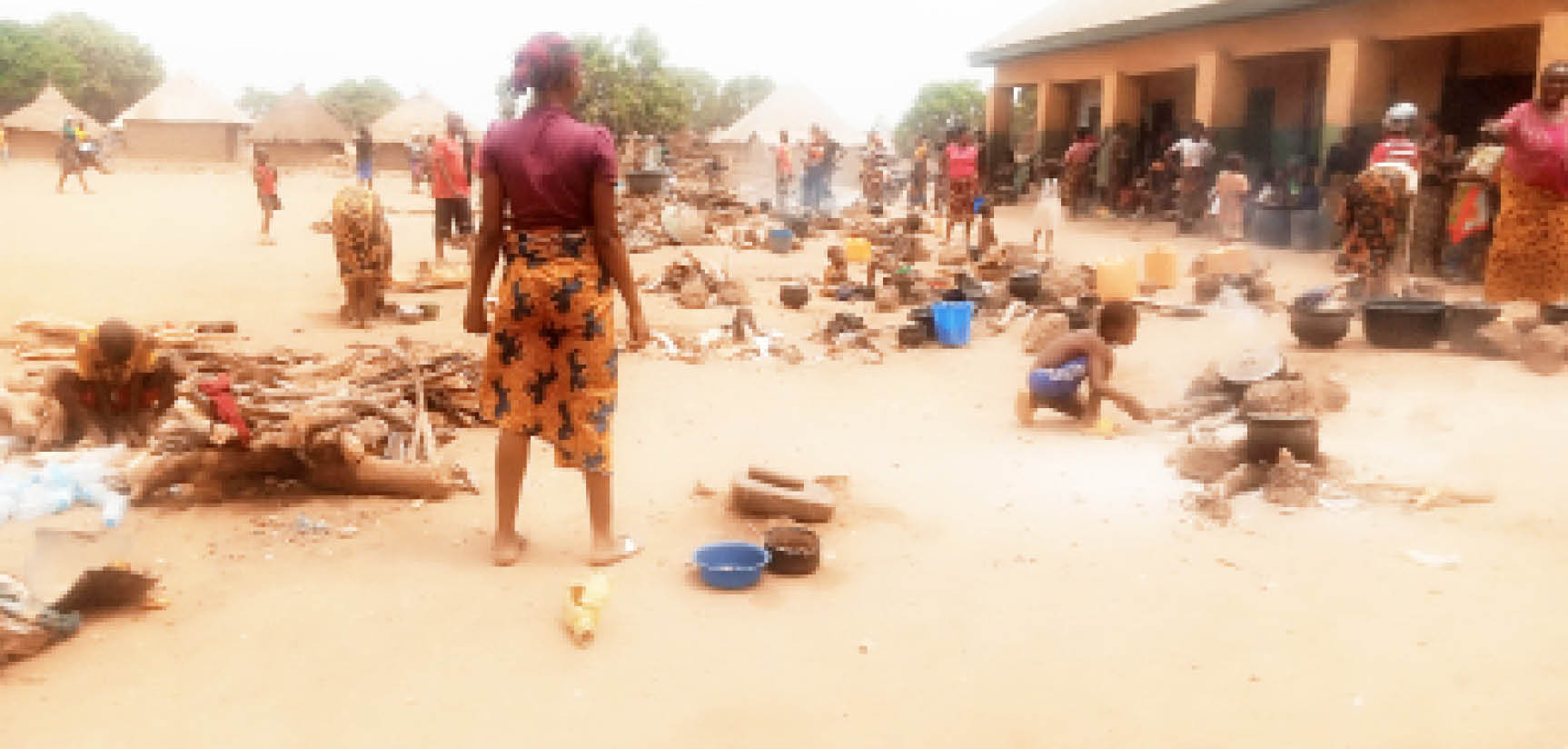Nigeria has the third-highest number of displaced persons in the world. This is according to data from the International Displacement Monitoring Centres (IDMC) which says that as of December 2020, 2.7 million Nigerians were forced to flee their homes due to conflicts and violence.
While the United Nations Refugee Agency, UNHCR, puts the current figure at 2.1 million as of the end of 2021, not including displaced Nigerians who have fled for safety to neighbouring countries like Niger Republic and Cameroon.
This year will mark the eighth year of Nigeria’s humanitarian crisis, according to the UNHCR, and with such a prohibitively high number of IDPs is a pointed shame and national embarrassment that the country has not developed a better mechanism for catering for IDPs. This is especially the case in the North Central and North-western regions, where huge numbers of people have been displaced by rural banditry and communal clashes.
As of November 2021, the Secretary of the Niger State Government, Ahmed Matane, acknowledged that the state had many IDP camps spread across 13 local governments and that the government had spent some N5 billion to cater for them. However, visits to IDP camps, not only in the state but across the country, show a significant level of neglect, with allegations of public officials enriching themselves from funds meant for the wellbeing of displaced persons.
There has been a consistent failure to identify and document all IDPs in order to provide better care for them while those who have taken over schools in towns and cities considered safe as their IDP camps have continued to suffer neglect, resulting in dozens of needless deaths from hunger, deprivation, poor hygiene and disease outbreaks.
For instance, some 22,365 people displaced from the Katsina villages of Shimfida, Garin Maiwuya, Garin Zango, Garin Kwari (Farfaru) and Tsambaye by bandits’ attacks are camped at the Government Girls Secondary School Jibia. Records by the Jibia Development Associations at the end of June show that 23 IDPs from this camp alone died from hunger, high blood pressure and depression and the generally poor state of life in the camp.
This is an unacceptably high number of lives to be lost due to the failure of relevant intervention agencies like the National Emergency Management Agency (NEMA) and its local variants, and the Ministry of Humanitarian Affairs to take necessary measures.
The failure to properly coordinate the intervention for IDPs means that these unofficial camps have had to rely on the generosity of individuals and the host communities.
It also means greater exposure to exploitation and abuse of such vulnerable demography. This neglect has seen IDPs in Benue State who have to forage for food from farms being exposed to abuses like rape from unscrupulous elements. Because of their status, they are unable to report such crimes and seek redress. These people may be displaced but they have every right to be treated with dignity, which is a UN pre-requisite in dealing with humanitarian crises.
To this end, it is paramount that government not only secures the IDP camps but trains its personnel on how to manage ethical and professional relationships with the IDPs so as not to exploit them in their hours of need. It is also important to put in place mechanisms to address complaints and ensure the safety and wellbeing of IDPs. The same goes for non-profit organisations that may wish to intervene on behalf of these displaced persons.
To have these many people displaced in a country should be a worrying sign for any government and an alarming performance index that does not speak well of the government’s attention to welfare.
It is, therefore, imperative and a matter of immediate national concern for the federal, state and local governments to acknowledge the existence of these displaced people in their state, identify their camps, document them and provide the needed intervention to address their situation.
The NEMA must swing into action to perform its responsibility with regard to these IDPs while the Ministry of Humanitarian Affairs must also make provisions for their care and their resettlement.
The federal and state governments should, as a matter of urgency, secure their homelands and means of sustenance, be it their farms or other means of livelihood so they can return to their homes and fend for themselves in peace and security, which they are entitled to as humans and as citizens of this country.
Considering the widespread insecurity in the country, the relevant MDAs must devise mechanisms to ensure the immediate documentation of newly displaced Nigerians, and provide a system of immediate intervention until the federal government can secure the lives of every Nigerian in every part of this country. The federal government must not fail in its duty to secure lives, so too its agencies in their duty to at least make life tolerable for victims of violence.
The suffering, the security of lives of Nigerians and their well-being are far too important to be shoved under the carpet.

 Join Daily Trust WhatsApp Community For Quick Access To News and Happenings Around You.
Join Daily Trust WhatsApp Community For Quick Access To News and Happenings Around You.


